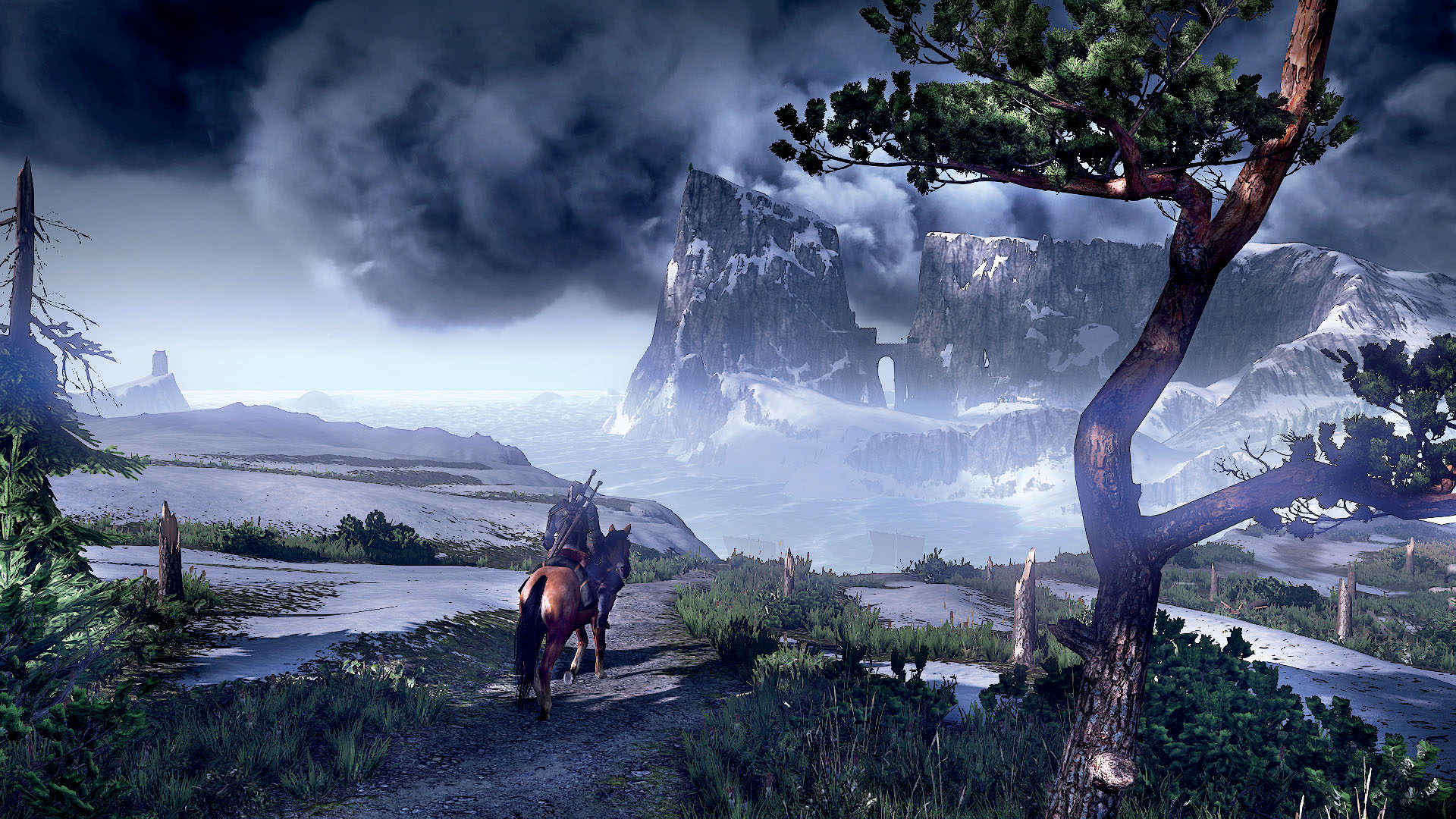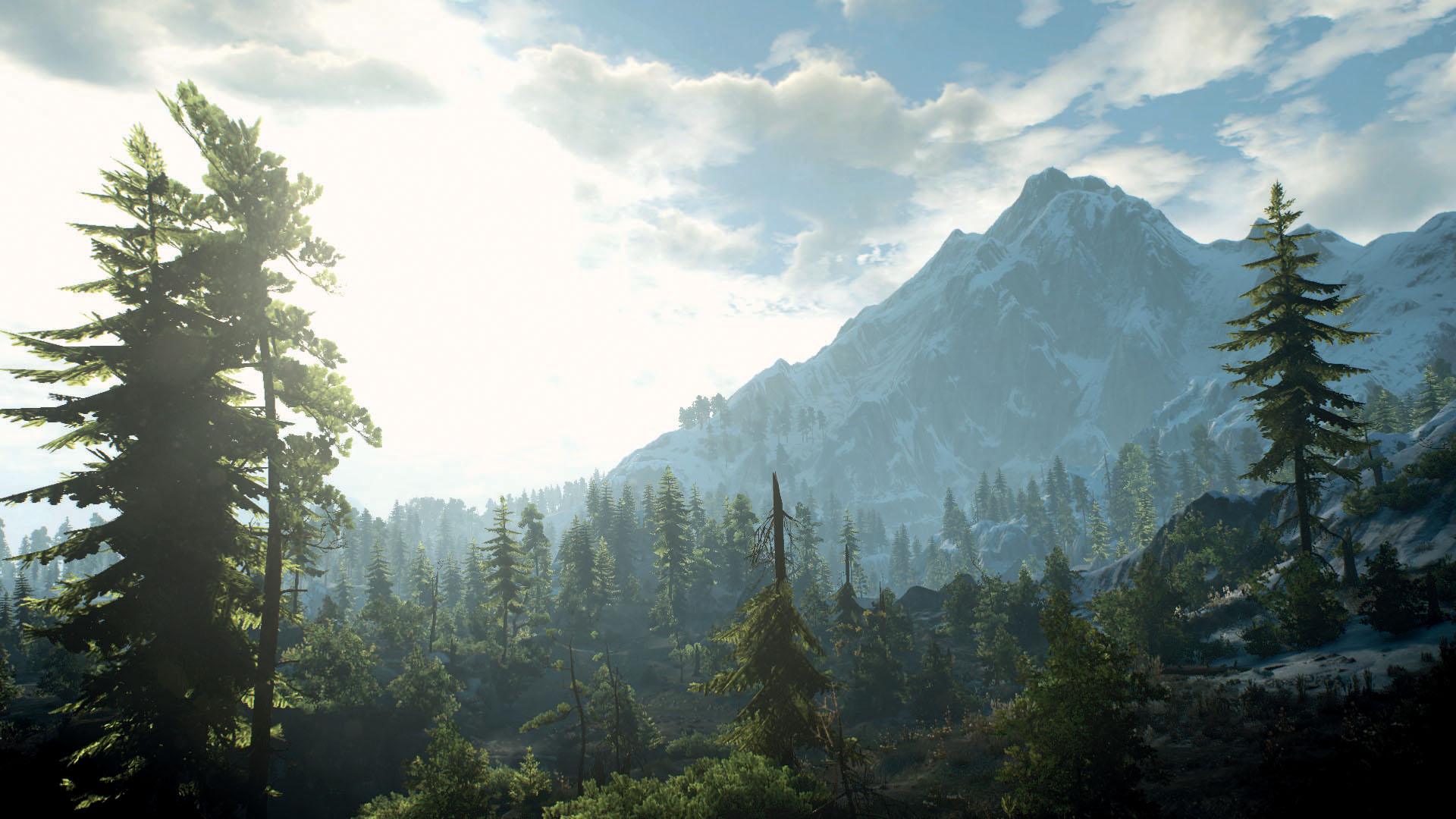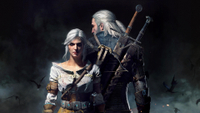The gritty reality of The Witcher 3's sorcery makes The Continent feel like home
Monsters and magic somehow make CDPR's world feel more real.

The scene before me is unfathomably ghastly. Charred limbs and torsos the colour of charcoal are the only things that suggest that these are humans littering the ground as I pick through the gore to find a man's lost brother. I've witnessed the carnage that remains of this battle between the forces of Nilfgaard and Temeria before in the deceptively-quaint region of White Orchard before, some years ago—so what possessed me to return to this nightmarish world?
Well, for a start, The Witcher 3 isn't all battlefields and rotting flesh. In fact, it's frequently staggering in its beauty, from the rugged pastoral scenes of Skellige to the bustling metropolis of Novigrad. Nevertheless, amid the bucolic rolling hills and the sparkling rivers running between them, tragedy lies. Civilians are murdered by soldiers, husbands abuse their wives, and serial killers play twisted, deadly games. Even in Toussaint, a fairytale space of impossible allure, the monstrous and cruel can be found beneath its shimmering surface.
While The Continent isn't exactly a holiday destination, few videogame worlds have had me so enchanted. It's an environment that feels real and, most importantly, human, warts and all. And, in many ways, that's not in spite of the fantastical magic and supernatural monsters inked into the world's rich canvas, but because of it.

- The Witcher season 2: Release date, cast, and trailers
- The Witcher 4: Will it happen?
Yes, some supernatural stuff comes from the Conjunction of the Spheres, where a collision of realms allowed magic to appear, but magic in The Witcher 3 otherwise tends to be rooted in something real. It doesn't just exist, it comes from somewhere. Manifestations of magic emerge from actions and foibles that are resolutely human. Take the Velen contract, Jenny O' The Woods, that has Geralt hunting a nightwraith. On further investigation, you discover that the demon was once a Temerian woman called Zula, violently murdered by a man whose romantic advances she'd once spurned.
You encounter countless examples like this throughout your journey in The Witcher 3. Family Matters sees you meeting the Bloody Baron, a man who's drunkenness and violence led to his wife's miscarriage. Then there's The White Lady, originally a woman who on her wedding day chose suicide over an arranged marriage to a much older man. Often monsters you're paid to exterminate are far from monstrous at all. Just like the singed husks decaying on the ground of White Orchard, these are just unfortunate souls made victims by tragic circumstances that are inescapably human.
It's this that distinguishes The Witcher's world from the high fantasy of The Lord of the Rings. Magic and the supernatural is subtle, not abundant. It makes The Continent a world we can all recognise: it's textured with sorcery, rather than defined by it.
So I keep coming back to Geralt's world, for all its grotesque battlefields and human defects, because it feels reassuringly like home. The Witcher 3's world isn't perfect, and nor do I want it to be. The magic that ebbs and flows within it is a neutral force bound up with very real human impulses.
Keep up to date with the most important stories and the best deals, as picked by the PC Gamer team.
The problems that plague the world aren't my own, but, also, they are. The difference is that, by contrast to the intractable issues that beset the real world, which can make us feel helpless, these Geralt has the means to do something about. Hopefully, after hours faced with just about everything humans can do to one another, we learned something about the real world, and ourselves.
UK — After collecting and devouring piles of print gaming guides in his younger days, Harry has been creating 21st century versions for the past five years as Guides Writer at PCGamesN and Guides Editor at PC Gamer. He has also produced features, reviews, and even more guides for Trusted Reviews, TechRadar and Top Ten Reviews. He's been playing and picking apart PC games for over two decades, from hazy memories of what was probably a Snake knock-off on his first rig when he was seven to producing informative guides on football simulators, open-world role-playing games, and shooters today. So many by now he steadfastly refuses to convey information unless it’s in clickable online form.




